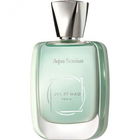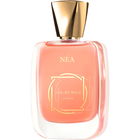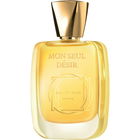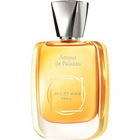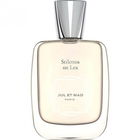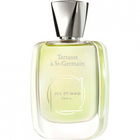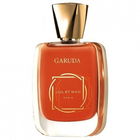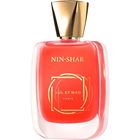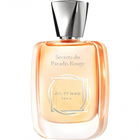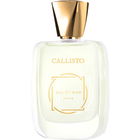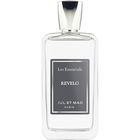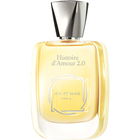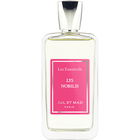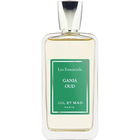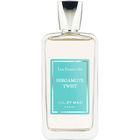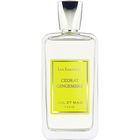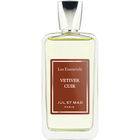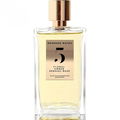
Stanze
105 Reviews
Translated · Show original

Stanze
Top Review
33
Desire and Frustration in the 13th Century
The beautiful Francesca waits for Paolo in her boudoir. She has carefully but inconspicuously done her makeup for him. She has powdered her face, as paleness is elegant. She has applied red lipstick. She has tucked pouches of spices into her dress. She has placed a crown of braided carnations on her head. She smells spicy, sweet, powdery, and floral. She looks young and innocent, even though she is almost 30 years old. A beam of light falls through the small pointed window onto Francesca; she seems to glow softly from within. There is a quiet knock at the secret door to the corridor outside. The agreed signal. Paolo is here.
Francesca da Rimini (1255-1285) was married for political reasons to the disabled Giovanni Malatesta (died 1305). I do not know how disabled Giovanni was, but since he played a rather active role in history, it cannot have been too severe. He may have limped. Francesca had an affair with Paolo Malatesta (1246-1285), one of Giovanni's two brothers. Probably half the town knew about it before Giovanni surprised and killed the two in 1285. The beginning of a family feud and material for dramas, operas, paintings, and sculptures. Dante Alighieri (1265-1321) was a contemporary and had known Francesca and Paolo. In his "Divine Comedy" (1307-1321), he wrote about the lovers.
"And she to me: 'Who knows a greater suffering,
Than one who in misery remembers a happier time?'"
He wrote that they were in hell because they had experienced beautiful times. In doing so, he contrasted them with himself and his unfulfilled love for Beatrice Portinari (1265-1290). Dante never had anything with Beatrice. Both were married to other people. It occurs to me that Dante might have been a bit envious. Of course, the affair led to the death of the two lovers (and later there was also a revenge act by a son of Paolo). But they had been happy before. Dante may have never been happy. What if there is no hell? Hell is other people. Or one can also be hell to oneself. Beatrice died in 1290. Was it perhaps better for Dante to invent a reason why he would have gone to hell if he had confessed his love to Beatrice? In any case, I do not agree with Dante. Beautiful memories are a wonderful thing in old age.
"Fugit Amor" is a sculpture by Auguste Rodin, which he designed in 1885 and created between 1886 and 1887. It depicts Francesca with her lover and brother-in-law Paolo as characters in Dante's work. They are naked. Francesca is trying to wriggle out of Paolo's arms. The fragrance Fugit Amor, in turn, is inspired by Rodin's sculpture.
I really like the perfume Fugit Amor. Maybe I am too old for it, but I wear it anyway. The scent is by no means skin-close, but it seems that way to familiar tester M. I assume there are fragrance materials in it that not everyone can smell equally well. As we already mentioned with Yatagan in his statement, this might be a womanly thing..
Fugit Amor can be worn year-round and on any occasion, except for sports. If only Paolo had been more athletic, he could have defended himself against Giovanni. If Francesca had been more athletic, she could have run out and screamed for help. (Which, as an adulteress in the 13th century, admittedly would not have helped her much.) The scent lasts quite well; I cannot provide exact times yet. The sillage varies depending on the nose. Fugit Amor suits Francesca more than Paolo. For me, it is a very pleasant feel-good scent. I am not the right person to ask whether a scent is sexy or not. You will have to find that out for yourselves.
Francesca da Rimini (1255-1285) was married for political reasons to the disabled Giovanni Malatesta (died 1305). I do not know how disabled Giovanni was, but since he played a rather active role in history, it cannot have been too severe. He may have limped. Francesca had an affair with Paolo Malatesta (1246-1285), one of Giovanni's two brothers. Probably half the town knew about it before Giovanni surprised and killed the two in 1285. The beginning of a family feud and material for dramas, operas, paintings, and sculptures. Dante Alighieri (1265-1321) was a contemporary and had known Francesca and Paolo. In his "Divine Comedy" (1307-1321), he wrote about the lovers.
"And she to me: 'Who knows a greater suffering,
Than one who in misery remembers a happier time?'"
He wrote that they were in hell because they had experienced beautiful times. In doing so, he contrasted them with himself and his unfulfilled love for Beatrice Portinari (1265-1290). Dante never had anything with Beatrice. Both were married to other people. It occurs to me that Dante might have been a bit envious. Of course, the affair led to the death of the two lovers (and later there was also a revenge act by a son of Paolo). But they had been happy before. Dante may have never been happy. What if there is no hell? Hell is other people. Or one can also be hell to oneself. Beatrice died in 1290. Was it perhaps better for Dante to invent a reason why he would have gone to hell if he had confessed his love to Beatrice? In any case, I do not agree with Dante. Beautiful memories are a wonderful thing in old age.
"Fugit Amor" is a sculpture by Auguste Rodin, which he designed in 1885 and created between 1886 and 1887. It depicts Francesca with her lover and brother-in-law Paolo as characters in Dante's work. They are naked. Francesca is trying to wriggle out of Paolo's arms. The fragrance Fugit Amor, in turn, is inspired by Rodin's sculpture.
I really like the perfume Fugit Amor. Maybe I am too old for it, but I wear it anyway. The scent is by no means skin-close, but it seems that way to familiar tester M. I assume there are fragrance materials in it that not everyone can smell equally well. As we already mentioned with Yatagan in his statement, this might be a womanly thing..
Fugit Amor can be worn year-round and on any occasion, except for sports. If only Paolo had been more athletic, he could have defended himself against Giovanni. If Francesca had been more athletic, she could have run out and screamed for help. (Which, as an adulteress in the 13th century, admittedly would not have helped her much.) The scent lasts quite well; I cannot provide exact times yet. The sillage varies depending on the nose. Fugit Amor suits Francesca more than Paolo. For me, it is a very pleasant feel-good scent. I am not the right person to ask whether a scent is sexy or not. You will have to find that out for yourselves.
25 Comments









 Top Notes
Top Notes  Cardamom
Cardamom Ginger
Ginger Pink pepper
Pink pepper Cinnamon
Cinnamon Elemi resin
Elemi resin Heart Notes
Heart Notes  Carnation
Carnation Base Notes
Base Notes  Cedarwood
Cedarwood Musk
Musk Amber
Amber Vetiver
Vetiver
 Gandix
Gandix Schalkerin
Schalkerin Zerotonin
Zerotonin Sweetsmell75
Sweetsmell75 Achilles
Achilles Rieke2021
Rieke2021 Stanze
Stanze SchatzSucher
SchatzSucher Lilienfeld
Lilienfeld Yatagan
Yatagan